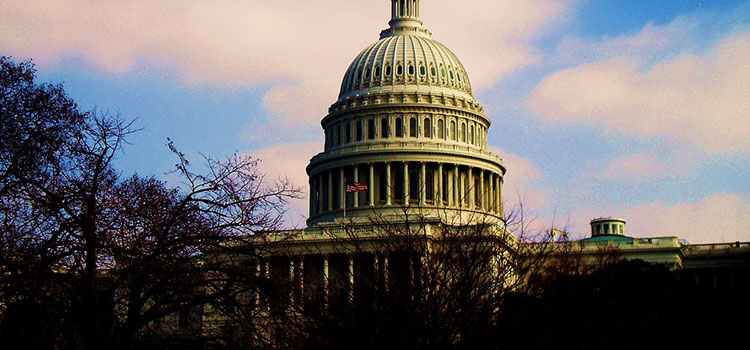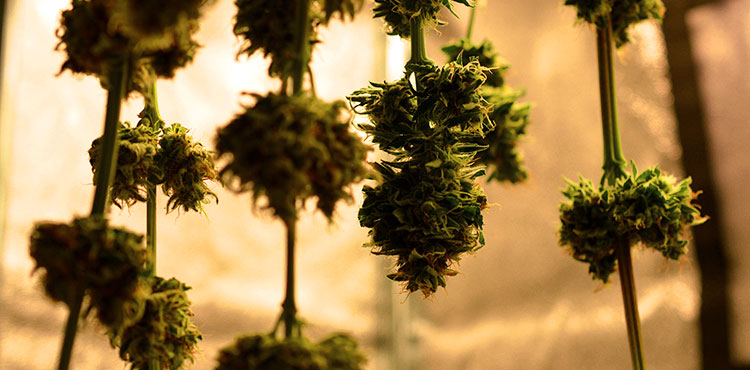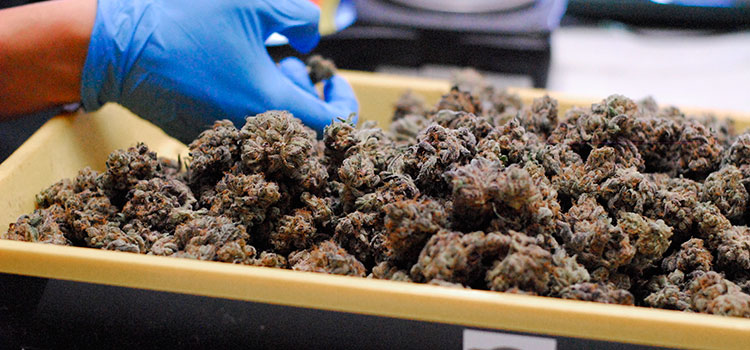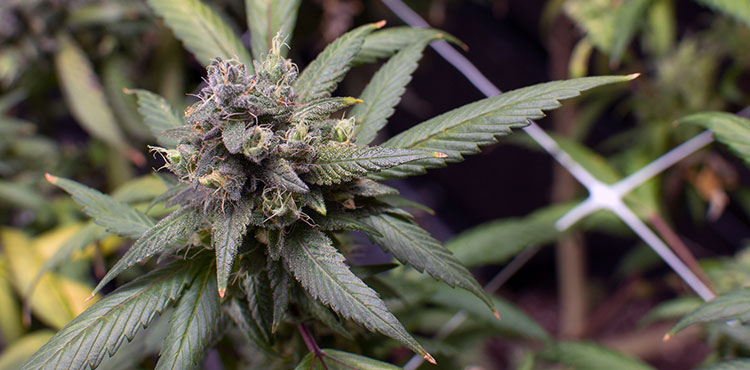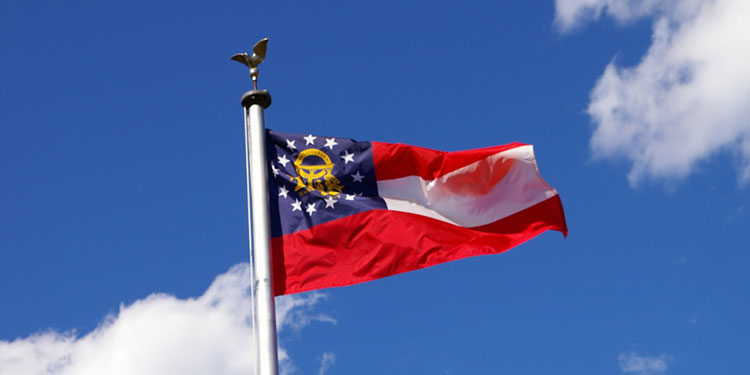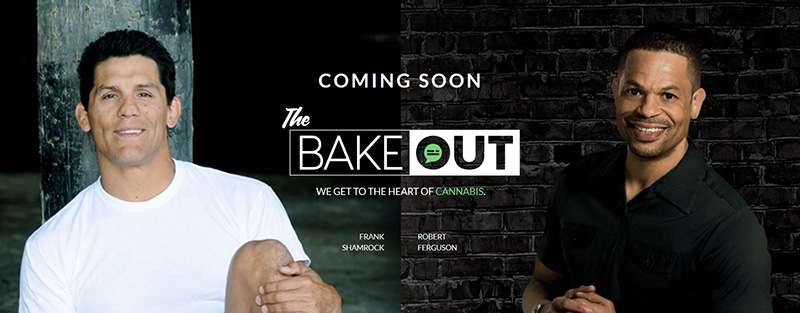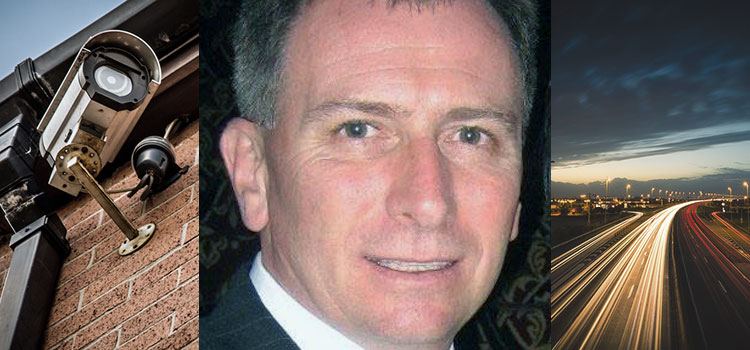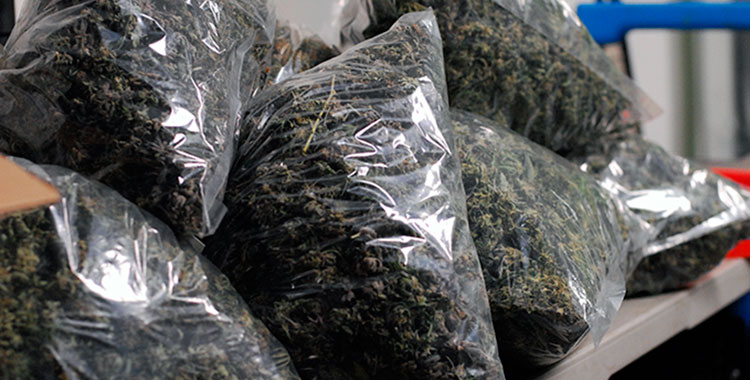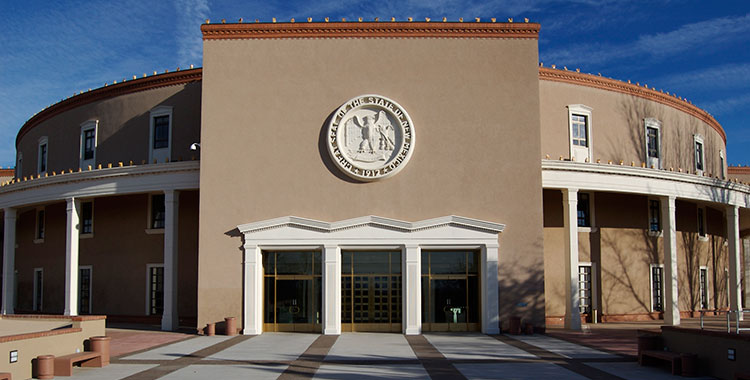One of the most frequent and well-known labels applied to cannabis users is that of the “lazy stoner” — the idea that cannabis use goes hand-in-hand with a sedentary lifestyle and lack of motivation. Patients, advocates, and cannabis entrepreneurs know that this is false (although of course anyone can get too high to function if they over-consume), yet this notion continues to appear in mainstream culture on a regular basis. Our latest podcast guest is involved in numerous business ventures that directly challenge this stereotype. Our podcast host TG Branfalt recently sat down for a conversation with Jim McAlpine, a serial cannabis entrepreneur best-known for his roles as founder and organizer of the New West Summit, 420 Games, and Powerplant Fitness.
In the interview, Jim details his own personal experience with micro-dosing cannabis to help him get past the mental barrier to exercising and losing weight, how he set out to organize athletic events geared toward cannabis users with the 420 Games, how cannabis can help with athletic recovery, and why he feels it should not be classified as a performance enhancing drug by sports regulatory bodies.
Listen to the full interview below, or scroll down for the transcript!
Subscribe to the Ganjapreneur podcast on iTunes, Stitcher, SoundCloud or Google Play.
Listen to the podcast:
Read the transcript:
TG Branfalt: Hey there, I’m TG Branfalt and you are listening to the Ganjapreneur.com podcast. The Ganjapreneur podcast gives us an opportunity to speak directly with entrepreneurs and experts who are working on the frontlines of the industry to normalize cannabis through responsible business, education, and activism. As your host, I will try to do my best to bring you actionable information to help you plan, grow, and manage your cannabis business. And today I’m joined by Jim McAlpine, founder of New West Summit, 420 Games, Powerplant Fitness, and Cannathlete.
Jim McAlpine: Hey TG, how you doing? I’m doing great.
TG Branfalt: I’m doing all right. It’s a bit cold here in Detroit, Michigan but it’s what you expect, right? December, after all.
Jim McAlpine: Pretty frosty across the whole United States right now, it’s cold out here in Cali as well.
TG Branfalt: Well let’s get right into it. I want to start a bit about your personal journey, I read a lot of your interviews and watched a bunch of panel discussions that you were on and something that really struck me is that you used cannabis as a way to lose weight, and at first that sounds a little counter-intuitive to many because cannabis is known for its munchie side effect and it’s often used to help people regain their appetite or stop vomiting from chemo-therapy. How did you decide to take that route and what was your approach and experience?
Jim McAlpine: Yeah, you know about three years ago during when my wife had our second child, I sat next to her and ate donuts and pizza and packed on a good solid 50 plus pounds. It does sound counter-intuitive but one thing people don’t know, I think the majority of people don’t know, is that edibles really affect you differently than when you smoke and edibles, if taken the right way can help suppress your appetite, per se. I used more of an edible dosing type of situation than smoking and I think that’s one of the reasons I was more successful. Because when you eat cannabis, it goes into your blood stream and through your liver and it stays in your system a lot longer so it affects you a little bit differently and works as an appetite suppressant better when you take cannabis as an edible.
TG Branfalt: You also paired that with an exercise regiment probably, right?
Jim McAlpine: Correct. I was just going to go there. The second piece of it is, the majority of people I meet don’t find it fun to go out and exercise. I think most people look at that as a chore versus fun and for me, what I did was kind of two things. I took down that barrier of feeling like I needed to do what I did when I was in college, I’d find myself going to the gym and slapping all this weight on and feeling discouraged that I wasn’t as strong as I used to be so the first thing I did was I broke down that wall of … You need to start slow, so take the cannabis out of it, anyone trying to lose weight, you can’t just jump in and be what you used to be. I said, hey I’m going to start walking and just walk three miles every morning and I rose that up to about five miles every morning.
But I would smoke right before, or eat right before, I should say, and occasionally I would take a puff when I was out of edibles but I would find that my cannabis kind of kicked in about the middle of my walk and it was right when I was getting a little bored and would want to turn around and the bird chirping started sounding a little cooler and my mind started flowing into a good state and I just found it helped me motivate myself to continue to exercise and stay out there and walk a little bit longer versus go back and quit and do something else.
TG Branfalt: This wasn’t something that was brought on by an encounter with a doctor or nutritionist, it was just something that you discovered about yourself that you helped … You used to help you develop this motivation technique, essentially.
Jim McAlpine: Yeah, I had read here and there about the fact that edible cannabis works differently in terms of appetite suppression, but other than that, no. I just kind of dialed it in and like I said, when you’re starting slow it’s not like I’m doing anything super … with coordination needed so I just started with an edible and found my sweet spot that way and just slowly built upon what I did. Yeah, it was just a process of feeling it out for me and I think that’s important. Everybody’s at a different level of needing to lose weight or athleticism so just start slow and find your sweet spot is my suggestion to make it something you want to stick with because I hate that feeling of getting too high and eating too much. Both with the cannabis and exercise, I think that the key is starting slow so you stay engaged and you don’t get those incredibly sore muscles and you want to do it again the next day.
TG Branfalt: You kind of turned this into what is called the 420 Games and from the interviews that I’ve read with you, part of the reason you created these events was to dispel the lazy stoner stereotype. Can you tell us a bit more about your thought process for the games, what they entail?
Jim McAlpine: Yeah, absolutely. Starting with what you said, de-stigmatization. I kind of have always looked at Hollywood and the Jeff Spikkoli and Dude Where’s My Car images that are almost representative of a cannabis user and that term ‘stoner’ as a blanket term for anybody that uses cannabis and I personally dislike the term stoner. I think it insinuates laziness and stupidity. The goal out of the gate was to say hey, let’s go out and do something really different than any other cannabis event because, being completely frank, I don’t think it’s a bad event, but I think when the general public looks in at Hemp Con or the High Times Cups, it gives the industry and a cannabis user in general a semi-bad name. It throws that stoner stigma out there so I wanted to create an event that was the opposite of that and we go out and do 4.20 mile runs in different cities to show we’re cannabis users but we’re not lazy and we like to go out and do things, not sit on the couch and eat Taco Bell.
TG Branfalt: Where are you holding these games? Where have you held them? Do you anticipate bringing them to some of the newly legal states?
Jim McAlpine: Very much so, yeah. This is just the end of our second year, our first year we were just in Northern California but this past year we did a six state tour, or a six city tour I should say. We did San Francisco and Los Angeles, we did Boulder and Denver, and we did Portland and Seattle. We’re doing all of those cities again in 2017 but since legalization swept across the nation, we decided to go to Boston and celebrate with them that they’re now recreationally legal. We’re going to go to Orlando, Florida. We’re going to hit Phoenix, Arizona and we’re going to hit Las Vegas, Nevada and add those dates to the tour this year too to become a fully national tour.
TG Branfalt: What type of people do you see coming to these events? Is it high-level athletes or is it somebody like me, for example, who could probably be in better shape but could probably still run a 4.20 mile.
Jim McAlpine: That’s a great question and it’s a very big cross section of people. One of the guys that’s, I don’t want to call him sponsored, but he comes to all of our events. His name is Avery Collins, he’s the world record holder in a 200 mile race and he’s one of the top ten in the world at ultra-marathons which are 100-mile races so he usually crushes everyone at the race and there’s several other very competitive runners that we see at all the races.
Then there’s guys like you and me, that are kind of in that middle ground, just want to get back in shape or are trying to stay in shape. Honestly, my favorite people to see out there are both people that want to get back into shape because I think this whole thing is about inspiring people to come out and be active and you don’t have to run, just like I said, a lot of people come out and walk. We have grandparents that come out, we have people that are very overweight that want to lose weight and it’s a family friendly event so we even have kids. My daughter who’s now seven has walked several of the events over the last couple of years.
TG Branfalt: Was it difficult to find a place to host these events and what are the consumption rules that you have in place?
Jim McAlpine: The first answer is yes and the stigma is the reason why. When we first went to Golden Gate Park in San Francisco and wanted to do this, there was a massive pushback from the park and every new city we go to, we kind of get the same thing. Thankfully, now that we’ve done this for a couple of years and we’ve got videos and a lot of media behind us, we can show them what we are now and they get it more quickly. But it took a year for San Francisco and Golden Gate Park authorities to understand who we are so we really just try and push softly in and let them figure out that this is not your typical cannabis event.
And to answer you second question, it kind of relates because during these first two years here, we decided we were going to have no smoking at our events so there’s actually no smoking or vaping allowed at our events for a cognitive reason that we’re trying to change the perception of cannabis so we don’t want people from the outside looking in to see a cloud of smoke figuratively and literally over our heads. We inspire people to say hey you can discretely medicate prior to the event or you can use an edible but while you’re here at our event, we want to have kids and families here and we ask you all to abstain from smoking in the general vicinity of our event.
TG Branfalt: I’ve seen some videos and you guys have sponsorship booths and obviously they’re not similar to the booths that I saw at the Cannabis Cup that I saw here in Michigan, I’m sure. How do you go about selecting the sponsors? Are they all cannabis businesses or have some mainstream athletic brands jumped on the bandwagon at all?
Jim McAlpine: Yeah another good question. The majority are in each town or city like the dispensaries and the brands, the edibles and the concentrates and the flower brands and different ancillary things like Eaze is a delivery service that’s out here in California at all of our events. But what really made me feel like we hit a sweet spot and made something special is really the first non-endemic cannabis brands that I’ve ever seen come into sponsor or associate with the cannabis industry have been our events. Bare-Naked Granola came out to one of our events and sponsored it, Cliff Bar, one of the local TV stations even. KRON4, one of the big local San Francisco TV stations became a media sponsor.
I feel like we’ve created something special that’s very different than anything out there and it gives the opportunity for the non-cannabis companies to have a safe venture to come sponsor or be part of what we do. Honestly this year at MJ Biz we had the honor of being awarded the industry’s best consumer event and I found it ironic that we’re an event that doesn’t even allow cannabis to be smoked at our event and we won over all these other big cups and whatnot. I think it says a lot about the way when we put these events on, we should be looking at how we position it.
I actually want to have consumption at these events eventually, but rather than have it be Dab Fest 2017 where people are taking 25 dabs and everyone looks like they’re in a coma, I want to do micro-dosing and have our companies that are … really we pick them by only the highest level quality companies in cannabis. We’re not going to go out and work with companies that don’t focus on quality and healthy consumption and I’d like to have those companies have the ability to … More like sampling a fine wine and talking to a sommelier, take very small samples and really focus on the taste, not how high we can get in three hours at an event.
TG Branfalt: I do want to touch on this micro-dosing point but before we do, we have to take a short break. I am TG Branfalt and you are listening to the Ganjapreneur.com podcast.
Sponsored by Latitude Financial
Being an entrepreneur comes with a lot of stress, and while you are busy developing and running your business, managing a team of loyal employees and working to build a sustainable venture, the last thing you should need to worry about are your personal finances. With Latitude Financial Group, you will have the tools you need to manage your finances efficiently and easily without all the hassle. Latitude Financial Group provides a platform that shows you everything you have all in one place and that stays current without time-consuming updates and synchronizations. You’ll gain access to a free, one-hour consultation and an award-winning financial software suite that will empower you to better visualize and manage your finances. With Latitude, you can form a relationship with an unbiased, fee-based, objective, professional, personal advisor who understands your unique concerns, who listens to your needs, and who has years of experience applying financial solutions to the most complicated of financial scenarios.
With Latitude Financial Group, you will have the tools you need to manage your finances efficiently and easily without all the hassle. Latitude Financial Group provides a platform that shows you everything you have all in one place and that stays current without time-consuming updates and synchronizations. You’ll gain access to a free, one-hour consultation and an award-winning financial software suite that will empower you to better visualize and manage your finances. With Latitude, you can form a relationship with an unbiased, fee-based, objective, professional, personal advisor who understands your unique concerns, who listens to your needs, and who has years of experience applying financial solutions to the most complicated of financial scenarios.
Based in Denver, Colorado. The Latitude Financial Group team will work with you in ways that fit your life. Whether you prefer a face to face meeting with an advisor at one of their 20 metro Denver areas locations, a phone call, or a Skype meeting, they can help you work to achieve your financial goals. So if you’re personal or business finances are causing you stress, if you’re losing sleep wondering if your financial future is secure in the career path you have chosen, or if you want to work with a financial advisor who is interested in helping you become successful in your business endeavors, give Latitude Financial Group a call and start being proactive about your financial future today.
Don’t wait. Latitude is offering the first ten listeners one year of free access to their award winning software platform. Go to rollingingrass.com. That’s rollingingrass.com to get Latitude in your financial life. Security is offered through Securities America Incorporated, the registered broker-dealer of FINRA and SIPC. Advisory services offered through Securities America Advisors Incorporated and SEC registered investment advisory firm. Scott Cody, Daniel Grote representatives, Latitude Financial Group and Securities America are unaffiliated. Latitude Financial Group and the Securities America companies are unaffiliated.
TG Branfalt: All right, welcome back you are listening to the ganjapreneur.com podcast. I’m TG Branfalt here with Jim McAlpine, the founder of New West Summit, the 420 Games, Powerplant Fitness, and Cannathlete. Before the break, you had mentioned micro-dosing and in virtually every panel I watched you’d speak on and every article that you’re quoted in, you’re a proponent of this idea of micro-dosing. What is your theory behind micro-dosing?
Jim McAlpine: Speaking from an athletic standpoint, what I like to do when I use cannabis is increase my focus. Take my consciousness and ramp it up just a small amount so I become a little more engaged in what I’m doing. I don’t want to become totally spun where I’m super, super high and my coordination or my thought process is going to be impaired. The best way for people to do that is ingest smaller amounts of cannabis and now that it’s legal, we can look at the labels and what we’re putting in our body and in my perception, a micro-dose is about five milligrams of cannabis or less. Some people say ten milligrams of cannabis or less but I would say about five milligrams or less per dosage is what I quantify as a micro-dose.
Actually to expand a little bit, you mentioned Cannathlete, one of our companies that is the world’s first athletic cannabis brand. What we did is we actually drilled it down even further. I don’t think in the marketplace I’ve seen anything under five except one company, Kiva makes a 2.5 milligram micro-dose, our spray that we make is one milligram per spray in your mouth and what I really think that’s going to be helpful for, if you’ve not used cannabis before or you haven’t tried it in 20 years and you’re going to do it again now because it’s legal, you want to start slow. As I talked about earlier, it’s not a good feeling when you get too high and I think your first experience is a very important one and I really really don’t want people on their first experience to eat five or ten milligrams and get that, oh shit, I’m not feeling great feeling. I’m too high.
I think micro-dosing is both a great way for people to introduce themselves to edible cannabis use because it’s hard to figure out what your dose is and then as an athlete I think it allows you to increase your focus without decreasing your coordination.
TG Branfalt: To your point, I think that a lot of people who do use cannabis on a daily basis, do this without recognizing that that’s what they’re doing. Just quickly, an aside, most of the time before I go and cover a story, I’ll eat a five-milligram gummy because it helps cure my anxiety, essentially and I didn’t realize that that’s what I was doing. The mainstreaming, I guess, of micro-dosing through the 420 Games or through your own activism it’s a very, very interesting kind of point that I’m not seeing that much of.
I do too want to talk about using cannabis to help with recovery. Is that something that micro-dosing is also useful for?
Jim McAlpine: Yeah, you know when someone says to me just straight up, “Hey Jim, what is marijuana in sports? What’s it good for? How do you do it?” My answer is there’s two ways. There’s focus, you can use it prior to your athletic activities to help accentuate focus and then the other answer is recovery. Just like you just said. And that one goes outside of the THC to the CBD part of the plant as well which I think both are effective in helping that pre-workout recovery aspect that an athlete needs.
TG Branfalt: Is it also good for recovery from say a long-term sports related injury? Would there be any differences in approach to using it for say a long-term injury versus maybe a short-term injury?
Jim McAlpine: Yeah, I think a good example I’ll use there. My daughter’s great-grandmother, my wife’s grandmother, she’s in her nineties, she’s in an assisted living home and she’s had really bad pain for years and years and years on her knees and finally I brought her some topical cannabis to put on her knees and she called us as we were driving home, crying saying, “Oh my god, please bring more of that, it’s the first time I’ve been out of pain in so and so long.” I think when you’re in a state of chronic pain, whether you’re an athlete or an elderly person or you’ve just hurt yourself, I think that finding topicals and things that you rub on top that goes into your body through your bloodstream or through your skin is a really great way for those more long-term injuries to let cannabis soak in and kind of help with the long-term pain, the chronic pain that you experience.
Then on the short-term for athletes that hurt themselves or if I just finished a long run and I want to get back into that place where I’m not feeling so cramped and whatnot. I think both CBD and THC can help an athlete at the end of a workout just kind of get back into that comfort place and recover a little bit quicker than if they just didn’t use anything at all. I think it’s good on both sides of the fence and I think the really important thing that the world realizes is you don’t have to get high using cannabis for recovery. You can use just the part of the plant called CBD and topical gels or even ingest it through smoking and you’re not going to feel any psychoactive effects, it’s just going to help with joint pain and all the other things your body might be craving to recover.
TG Branfalt: Do people at the 420 Games, do you see people using cannabis products during the cool-down period after the run for example?
Jim McAlpine: Like I said, we don’t allow smoking there so I don’t see a lot of people using at the event but I actually talk to everybody at the event about, “Hey, how do you use cannabis and how does it help you as an athlete?” And I think honestly, I use it for focus and I use it on long distance swims and whenever I’m going to go out and do something because I have some ADD and it helps me stay focused, but I really believe the majority of people use cannabis for recovery moreso than for focus and most of the people I talk to say yeah, they’re going to go home and whether it’s smoke a little bit to recover or eat an edible or use a topical, almost all of the people at the games at some level use it post-event workout to recover.
TG Branfalt: When we were talking about micro-dosing, you had mentioned the Cannathlete. A part of that is the train like a champion series, I’d seen the website and I’d seen some videos, how’d you develop that program and how’d you find athletes such as Jake Shields to participate in that series?
Jim McAlpine: That is my partner. His name is Seibo Shen, he’s in the industry. He actually makes the most healthy delivery device called the VapeXhale and so my partner Seibo knows Jake and he got him involved and we’ve also got another UFC guy that we’re both friends with, Denny Prokopos, he’s a national champion that came out of Greece but really the Jiu Jitsu community is probably the most cannabis friendly and the highest percentage of the Jiu Jitsu community as of any sport, are cannabis users. It was a surprise to me because I really didn’t know that but Jiu Jitsu and cannabis are almost as symbiotic as yoga and skiing and snowboarding, it just seems to be something that all the Jiu Jitsu athletes are drawn to.
We were lucky enough to have those guys come out and teach us weekend warriors some rolling techniques and some stretching techniques and personally they taught me a kettle bell workout that I did for 20 minutes and I was sore for three days. It’s really taking some high level, professional athletes that use cannabis and letting them show us weekend warriors how they integrate it into their training and kind of just giving us the extra nuance the non-professionals to step it up a notch, if you will.
TG Branfalt: We’re going to get a little more to athletes about the mainstream narrative that’s going on right now, but we’ve got to take one more short break. I’m TG Branfalt, you are listening to the Ganjapreneur.com podcast.
At Ganjapreneur, we have heard from dozens of cannabis business owners who have encountered the issue of cannabias, which is when a mainstream business whether a landlord, bank, or some other provider of vital business services refuse to do business with them simply because of their association with cannabis. We have even heard stories of businesses being unable to provide health and life insurance for their employees because the insurance providers were too afraid to work with them.
We believe that this fear is totally unreasonable and that cannabis business owners deserve access to the same services and resources that other businesses are afforded, that they should be able to hire consultation to help them follow the letter of the law in their business endeavours and that they should be able to provide employee benefits without needing to compromise on the quality of coverage they can offer.
This is why we created the Ganjapreneur.com business service directory, a resource for cannabis professionals to find and connect with service providers who are cannabis friendly and who are actively seeking cannabis industry clients. If you are considering hiring a business consultant, lawyer, accountant, web designer, or any other ancillary service for your business, go to ganjapreneur.com/businesses to browse hundreds of agencies, firms, and organizations who support cannabis legalization and who want to help you grow your business. With so many options to choose from in each service category, you will be able to browse company profiles and do research on multiple companies in advance so you can find the provider who is the best fit for your particular need.
Our business service directory is intended to be a useful and well-maintained resource, which is why we individually vet each listing that is submitted. If you are a business service provider who wants to work with cannabis clients, you may be a good fit for our service directory. Go to ganjapreneur.com/businesses to create your profile and start connecting with cannabis entrepreneurs today.
TG Branfalt: Welcome back to the Ganjapreneur.com podcast, I’m your host TG Branfalt, here with 420 Games founder, Jim McAlpine. Before the break we were talking about the train like a champion series and how you had gotten some high-level athletes to participate in that. In interviews, you’ve said marijuana use and you’ve said marijuana use does not equal stoner. Do you think admissions by legendary NBA coach, Phil Jackson and championship winning NBA coach, Steve Kerr, both who are extremely respected in their sport. Phil Jackson might be the best coach of all time, do you think that their admissions that they use medical cannabis will help change the narrative at all in professional sports?
Jim McAlpine: Phil pissed off Lebron a couple weeks ago, but I still have a lot of respect for him. I was ecstatic to see that. When I saw coach Kerr come out recently being I’m California guy and a warriors fan, that was amazing and I think it’s absolutely, especially now that it’s being … It’s coaches, not players, and respected coaches at that. That’s a huge leap forward and about three or four weeks ago I got a call from a guy named Rick Barry. He’s probably in the top 50 all time NBA players. He and I went and had lunch and he doesn’t use cannabis, he’s never used cannabis, but he wanted to come talk to me about Powerplant and how he could get involved because although he’s never used it, he agrees that the League should bring it into prominence and allow people to use it and he also as a business man sees the potential.
Yeah, from guys like Rick who are advocates of the use of it but don’t use marijuana and then coaches like Coach Kerr and Jackson, those are incredibly forward moving things for our industry to have those guys quote unquote, coming out of the closet if you will.
TG Branfalt: And you interact with a lot of high-level professional athletes. Ricky Williams is your partner, correct? On the Powerplant gym.
Jim McAlpine: Ricky helped me launch the gym and I also work with a lot of football players like, one of my good friends is Eugene Monroe, we just went and did a little podcast yesterday in San Francisco and Eugene is an amazing guy who just retired and is fighting the NFL directly, head-on to change their policies. I got a long list of … What I really wanted to do was build a list of different athletes from different sports because the NFL’s getting a lot of focus right now but I want … I’ve got an NHL player named Riley Cope and a couple UFC fighters and major league baseball players. It goes beyond football and basketball into all sports. I’m hopeful that we get an Olympic badminton player to be on our team because literally from weekend warrior up through those professional, top level guys, there’s benefit to all of them.
The pro-athletes though, they get the eyeballs and those are the guys that really get people to listen to us so I’m blessed and very thankful of all those guys who are helping me further the cause.
TG Branfalt: Have any of them been able to give you a sense of what it might take for cannabis therapies to be accepted by the professional leagues?
Jim McAlpine: It’s a frustrating road. I’m going to go backwards just quickly a little bit. Using the NFL as the conduit and then going into other things. But the NFL, I watched a movie called Concussion with Will Smith recently and everybody should watch that because it tells the story of what CTE is and what it does so well and what I learned in that movie is that there are hundreds of NFL players that put a gun in their mouth and blew their heads off, you know? Marshawn Salam just killed himself a week or two ago, he was a friend of mine as well and Heisman trophy winner and most people are suspecting that was CTE related.
Just getting to this point where everybody is stepping out of the darkness. Eugene actually stepped out against the owner’s association which are a bunch of white, privileged billionaires that are very, very conservative. To me, the two things that need to happen are more guys like Eugene need to step out and say no, this is messed up and we’re not going to stand for it and we demand change from you guys and that’s happening right now. Many, many guys are following behind him. And secondarily, the blessing that we have with legalization is science. Because people like the NFL can come back and say well everybody says this, but show us hard science to empirical evidence and it’s hard to do that right now because we don’t have any. Now that we’re able to compile data that’s all pointing to the facts that were correct, we can actually point towards doctors and clinical data that says you can’t refute this. This stuff works and you need to let your players use it.
TG Branfalt: Let’s say that medical cannabis were to be approved by athletic commissions, the question would have to be asked, is cannabis or could it be considered, a performance enhancing drug? What do we know scientifically about how cannabis interacts with human physiology during exercise?
Jim McAlpine: I don’t mean to say that I have the answer 100% but I will strongly say that I very, very firmly believe cannabis is not technically a performance enhancing drug. Definition is important there because a lot of people when they say performance enhancing, they just feel like, oh you’re having a better time or whatever but performance enhancing drug to me technically means something like a steroid that gives you an unfair advantage to build more muscle than the guy next to you and the best analogy I can use is the drug caffeine. Any athlete can drink a Red Bull to get more energy before they go out on the field. I hate caffeine. I don’t drink caffeine so I choose not to use it but another player can, so I don’t see why cannabis would not be looked at the same way. It’s a substance that doesn’t give you an unfair advantage. If you like caffeine and it gives you a little pump up, great. If you like cannabis, it helps you focus, great. That’s the way I look at it and I don’t think it should be something that …
I wouldn’t recommend an NFL player smoke weed right before they go on the field and go into the grid-iron, the battlefield, but if they really wanted to I don’t think there should be a law that says they can’t do that.
TG Branfalt: Do we know much about how cannabis interacts with us while we exercise or is that … The jury’s still out, the research is still being conducted sort of thing.
Jim McAlpine: I think, erring on the side of being cautious. I think I can’t say anything with 100% certainty but there is a lot being done and I’m just waiting for the empirical evidence to pile up so we can really begin to point at it. But there is, I’ll use one example. Very recently, you can google this, there’s been a lot of studies that have been done that the runner’s high, quote unquote that many people say comes from endorphins, actually comes partially or almost mostly from the endocannabinoid system. Through research that scientists have done on how people enter that state through exercise, again the runner’s high, it’s been … I can’t say that endorphins aren’t responsible for part of it, but it’s been fairly strongly proven that the majority of that feeling comes from the endocannabinoid system and that in it of itself kind of makes a huge statement that cannabis and athletics go together pretty well.
TG Branfalt: As someone who is involved with numerous fronts in the industry, what would you say is the most important thing that an aspiring cannabis entrepreneur should keep in mind as they go about launching their business?
Jim McAlpine: I would say in this industry right now, you have to have some staying power and you have to have persistence and the thing I would advise most entrepreneurs coming into this industry is to just do it. Don’t sit there and overthink it. This is a good industry, it’s a growing industry, it’s not too late but you have to have a strong, strong desire to forge down the path when people are telling you you shouldn’t be forging down that path. I think it’s just a strong sense of understanding that this is an amazing plant that does really, really good things and if in your heart you know that, I think you just need to stay true to what you know and don’t listen to those people that are telling you you’re doing the wrong thing. There’s so many doubters and so many haters out there.
For me it was hard to get over that hurtle to have my name associated with cannabis but I’m so incredibly glad I did and for anybody that’s thinking about it, I was worried about being judged by the PTA where my kids go to school or my people that I work with and I’ve literally had no one tell me that they think I’m doing a bad job or it’s something that’s inappropriate so I was very surprised at the pats on the back I got for jumping into this industry and it’s been an incredible experience and I hope many more other people make the jump as well.
TG Branfalt: Well Jim, we’re just about out of time but I want to thank you so much for joining us and maybe we’ll see the 420 Games in newly legal states like Michigan pretty soon.
Jim McAlpine: I would love that, by the way. Anyone out there in Michigan that hears this, shoot me an email. Just jim@420games.org and we’re expanding and we want to come to Michigan and many, many, many other places so if you live somewhere and you want to see us come there, shoot me an email, I’d love to hear from you.
TG Branfalt: You can find more episodes of the Ganjapreneur.com podcast in the podcast section of Ganjapreneur.com and in the Apple iTunes store. On the Ganjapreneur.com website you will find the latest cannabis news and cannabis jobs updated daily along with transcripts of this podcast. You can also download the Ganjapreneur.com app in iTunes and Google Play. I’ve been your host, TG Branfalt.



